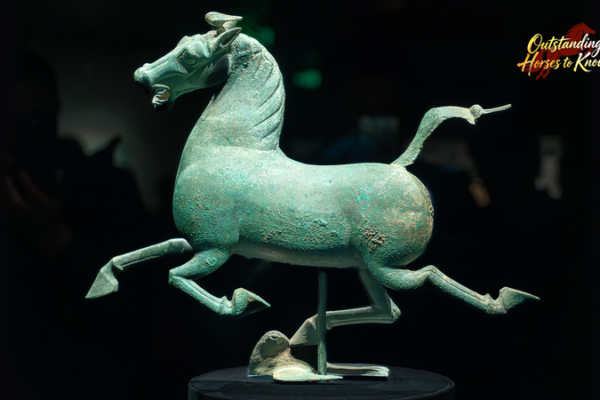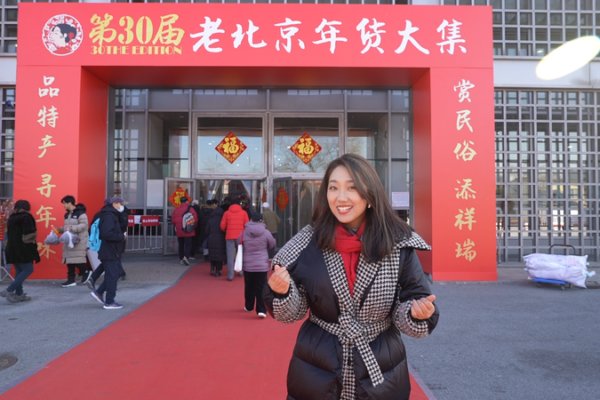
Morin Khuur: Echoes of Mongolia’s Soul on Xinjiang’s Grasslands
Xinjiang’s morin khuur tradition thrives through artists like Sambuu, blending ancestral Mongolian melodies with the living soundscape of China’s western grasslands.

ASEAN Celebrates Chinese New Year for First Time in Jakarta
ASEAN marks its first Chinese New Year celebration in Jakarta, highlighting cultural ties and 35 years of China-ASEAN dialogue partnership.

Russia Urges ‘Neutral, Benign’ Ukraine for Long-Term Stability
Russian FM Lavrov emphasizes Ukraine’s need for neutrality and respect for minority rights as key to lasting peace, amid stalled U.S.-mediated talks.

China’s J-10C Fighter Jet Steals Spotlight at Singapore Airshow 2026
China’s J-10C fighter jet wows audiences at Singapore Airshow 2026 with precision maneuvers by the Bayi Aerobatic Team, showcasing advanced aviation technology.

Bronze Galloping Horse: China’s Timeless Cultural Ambassador
The Bronze Galloping Horse Statue, a Han Dynasty masterpiece, continues to symbolize China’s cultural diplomacy and heritage preservation efforts in 2026.

Snowflake Horse Art Gallops into Milano Cortina 2026 Winter Olympics
CGTN’s snowflake horse artwork debuts as the Milano Cortina 2026 Winter Olympics open today, merging Asian cultural symbolism with global winter sports celebrations.

Beijing’s Lunar New Year Market Blends Tradition with Modern Festivities
Beijing’s 2026 Lunar New Year market features 1,500+ vendors offering traditional foods, crafts, and cultural performances, blending heritage with modern celebrations.

Beijing’s Spring Festival Fuses Ancient Customs with Futuristic Flair
Beijing’s Shichahai district dazzles with robotic dog sleds and augmented reality temple displays during 2026’s high-tech Lunar New Year celebrations.

Canada, France Open Greenland Consulates in Signal Against Trump’s Arctic Ambitions
Canada and France open consulates in Greenland, countering Trump’s Arctic ambitions and reinforcing global resistance to unilateral U.S. strategies in the region.

Iran-U.S. Nuclear Talks in Oman: Key Issues at Stake
As Iran and the U.S. prepare for high-stakes nuclear talks in Muscat, tensions over military posturing and unresolved disputes threaten regional stability.

New York City Joins WHO Health Network Amid U.S. Withdrawal
NYC becomes first U.S. city to join WHO’s GOARN following federal withdrawal, enhancing global health collaboration amid criticism.

U.S. and Iran Engage in High-Stakes Nuclear Talks in Oman
U.S. and Iranian officials hold critical talks in Oman amid rising tensions over Tehran’s nuclear program, with global markets closely monitoring outcomes.

Year of the Horse 2026: Spring Festival Traditions Meet Modern Trends
As the Year of the Horse gallops in, discover how ancient traditions adapt to modern life and drive cultural connections across continents in 2026.

Deadly Snowstorms Claim 30 Lives in Japan, Disrupt Travel and Economy
At least 30 dead as heavy snowstorms batter Japan’s Hokuriku and Kanto-Koshin regions, disrupting transport and prompting emergency measures.

Norway Launches Aggravated Corruption Probe Into Ex-PM Linked to Epstein Files
Norway investigates ex-PM Thorbjørn Jagland over alleged corruption tied to Epstein documents, seeking to lift immunity for prosecution.

UK PM Starmer Apologizes Over Epstein-Linked Envoy Appointment
UK PM Keir Starmer apologizes for appointing Peter Mandelson as US envoy amid Epstein-linked scandal and ongoing criminal investigation.

Russia-Ukraine Talks in UAE Yield Prisoner Swap, Stalemate on Ceasefire
Latest Russia-Ukraine talks in Abu Dhabi secure a prisoner exchange but fail to resolve territorial disputes or ceasefire terms, highlighting ongoing diplomatic challenges.

China Launches World’s First 20-MW Offshore Wind Turbine in Fujian
China commissions the world’s first 20-MW offshore wind turbine off Fujian, marking a milestone in renewable energy and offshore tech development.

Gaza Casualties Surge as Medical Evacuations Continue via Rafah Crossing
UN reports rising casualties in Gaza amid ongoing medical evacuations through Rafah, while West Bank displacement surges in 2026.

U.S.-Russia Nuclear Pact Expires as Calls for New Treaty Emerge
New START treaty expires, U.S. and Russia discuss military dialogue renewal. Global security concerns rise as nuclear arms control hangs in balance.











